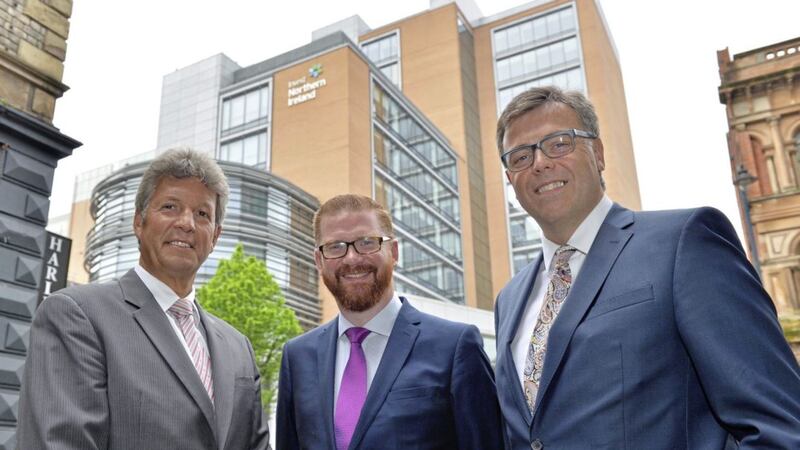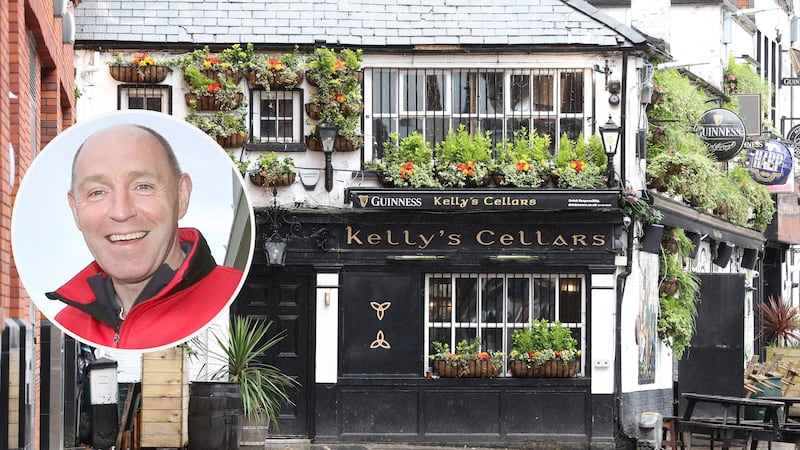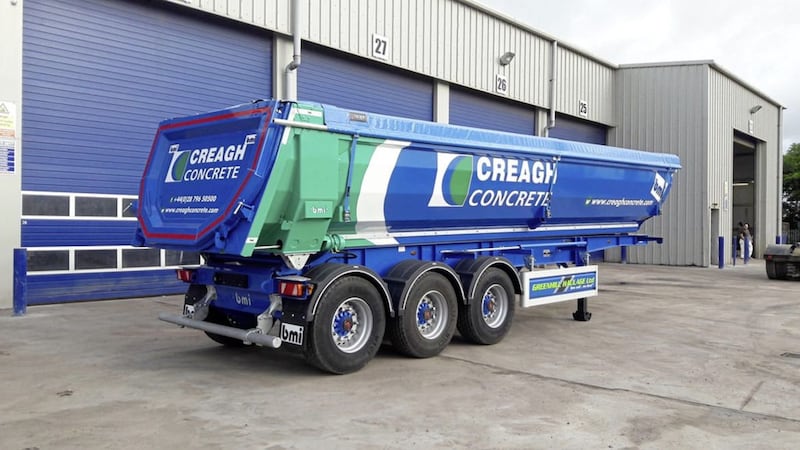THE last eight years have seen troubled economic times for many reasons, locally and globally. In 2011 we were still in the grip of a global economic downturn which had a real local impact. The property crash was hitting hard and indigenous business growth was limited.
Since then our own local version of Punch & Judy politics has returned to the fore and we have been without government since 2017, and if we are honest the Executive which was derailed then was yet to have the kind of positive, durable impact that the business community had hoped for. Too many difficult decisions were put on the long finger, planned infrastructure investment was snarled up in legal procedures and political wrangling, the pursuit of devolved power over corporation tax had become a fixation and in the end it proved just out of reach.
Into that mix came the juggernaut that is Brexit. There may well still be people who believe that Brexit is a positive thing, an economic opportunity, but even they must concede that the uncertainty over Brexit which kicked in at June 2016 and still pervades, has been a negative for business; for decision making, for strategy setting, for attracting investment.
That triple whammy of Brexit, political stagnation and the global downturn all combined to ensure that the last decade has presented a severe challenge to those charged with presenting Northern Ireland on the international stage as a suitable location for inward investment.
This context makes the success of Invest NI over that period all the more noteworthy. In each year of the last decade investment targets were met, then exceeded. In fact news of inward investment projects almost came to be taken for granted. Many leading global brand names have set up base in Northern Ireland in recent years, while support was also maintained for local companies expanding through exporting.
Invest NI is not without critics of course, and the complaints of regional imbalance have never gone away. I've always thought the vital first step was to sell Northern Ireland as a location, to bring the jobs within reach of people here, rather than to micro-manage the sale pitch. So taken as a whole, Invest NI, since the reorganisation of the old LEDU and IDB, has been a significant success.
But that organisation is now entering into a period of change with the announcement that both its chairman Mark Ennis and chief executive Alastair Hamilton will be stepping down from their roles in the months ahead after eight and 10 years respectively. That leaves a big gap at the head of the organisation and it is challenge which must be managed carefully.
Each of those men are strong personalities, demonstrably dedicated to making Northern Ireland a success, and as a team they were very effective. It should be noted too that for eight years up to 2015 Arlene Foster was the minister whose role it was to sell Northern Ireland abroad. That was the longest period for any individual minister to be at one department, and in truth Arlene was always more comfortable in her DETI role than that of First Minister. She was widely acknowledged as a hugely competent and confident Economy Minister during her tenure and together with Mark Ennis and Alastair Hamilton, they made a formidable trio.
Just taking the last year alone we have seen investment decisions from Imperva, Alchemy, Fintru, Eirtech Aviation, Novosco, Cayan and Chef. Each one of these businesses could have picked another destination for their investment, but were persuaded to come to Northern Ireland. Competition in the foreign direct investment market is severe and here we face the added complication of being land locked to a member state of the European Union which is not exiting against the will of it’s people as a whole, or of its business community.
Investment decisions are based on a range of factors including the available labour market, cost of business, available space, cost of living. Ultimately though these decisions are made by individuals and are driven by the personal motivation and on relations built up with senior staff of the relevant Government body, in our case that is Invest NI. Their record in the last decade is admirable and is a tribute to the leadership at the top of the organisation, and to entire team delivering the investment message, abroad and at home.
So a change is going to come within the organisation charged with delivering investment and supporting local business growth. Change is also coming, one way or the other, around Brexit and our future relationship with our neighbours in the European Union.
Whether that is to our advantage or our disadvantage remains in the balance, and is not helped by the tragicomedy currently playing out at Westminster with 10 out of the 11 MPs from here who take their seats misrepresenting the views of the majority of our population.
Selling Northern Ireland on the global stage will remain a significant challenge in the years ahead, and Invest NI has its own challenge to meet in replacing two key figures at the same time. The organisation will rise to that challenge I am sure, and in the meantime we should acknowledge the role played by the departing chair and CEO.
Who knows, perhaps by the time their replacements have settled in maybe we will have a local minister to work alongside them, or is that too much to hope for?
:: Brendan Mulgrew (brendan.mulgrew@mwadvocate.com) is managing partner at MW Advocate (www.mwadvocate.com). Follow him on Twitter @brendanbelfast
:: Next week: Conor Lambe








